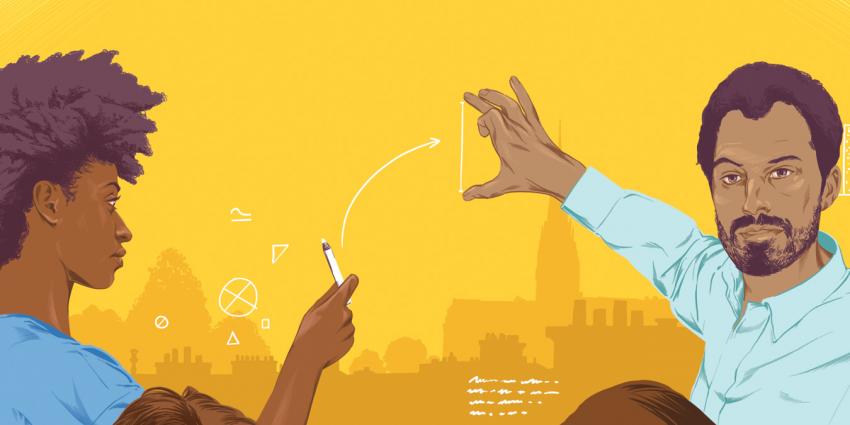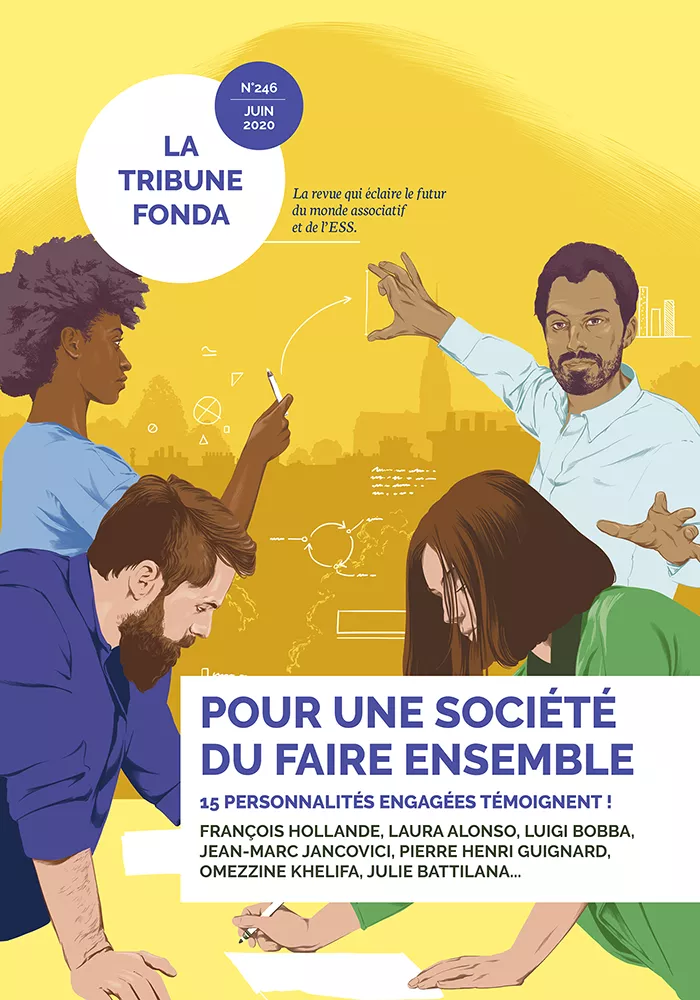Interview with Laura Alonso, head of the Argentine Anti-Corruption Office from 2015-2019.
Translated from French by Gillian Eaton.
Sustainable Development Goal 16 "Peace, justice and effective institutions" places the emphasis on combating corruption at all levels, by pointing out that illicit financial flows could be channelled into initiatives to combat poverty. What is the state of play with this goal to combat all forms of corruption?
Laura Alonso. Significant progress has been made over the past two decades. It is worth reiterating that at the time, businesses benefited from "legal cover" when they paid bribes in order to do business in developing countries. An important case changed the course of history and brought about a global revolution, which accelerated the rollout of an anti-corruption movement and new solutions. Since then, the preventive approach has taken on a whole new dimension: great importance is now being attached to institutional reform which increases the transaction costs of corruption. Although corruption must without doubt be punished, there is widespread agreement about the value of prevention policies. Indeed, when a prosecutor investigates the damage caused to a community, this damage has already been done, and unfortunately, compensation comes too late, and does not reach those affected, or at least not directly.
Concerns about the negative impact of corruption on development, trade, the environment and communities' quality of life are reflected in many global initiatives. The UN, OECD, EU, OEA, G20, G7, regional organisations and multilateral investment banks have been tackling corruption with different instruments for over two decades. Since Transparency International was founded, the number of global civil organisations that expose and combat this scourge has increased. Even multi-sector initiatives, such as the Extractive Industries Transparency Initiative, are increasing.
Just as respect for human rights and environmental protection are pivotal for countries' development, combating corruption has become a political issue that cuts across regional, national and international agendas. The issues involved include public sector integrity and open government, digitisation of procedures and transparent public procurement, and even private and public companies' corporate responsibility. They have also caused cross-cutting and sector-based agendas to emerge, such as the negative impact of corruption on the illegal trade of fauna and flora, on the extractive industries, and on the lives of women and minorities. In the private sector, corporate responsibility in this area has become a key policy in order to safeguard one of any company's most precious assets: its reputation. Progress in the private sector is reflected on company balance sheets. Just as gender equality increases a company's value, the same goes for a strong commitment to combat corruption.
You were executive director of Poder Ciudadano, the Argentine chapter of Transparency International. What resources do associations have to combat corruption? How can we ensure that their initiatives are heard and can bring about real change? Is legislation an effective means of leveraging organisations' proposals in order to more effectively control corruption?
NGOs provide a different voice and perspective to those of state actors and private sector players. However, NGOs do not always have sufficient budgets and this limits their ability to develop their work. They need to focus in order to build up a reputation in one or two areas. They can end up being a Jack of all trades, but a master of none. They need to develop synergy with think tanks and universities in order to produce knowledge. NGOs are skilled at simplifying messages and advocacy. They are heard or rebuffed, but in general, they are not ignored, even in fragile democracies. NGOs often find that some MPs are supportive and responsive. This happens worldwide and is practical, worthwhile and a good way of broadening public debate. They help increase the effectiveness and viability of reforms.
Lobbying needs to be legally recognized and made transparent in order to separate and differentiate between those who professionally advocate for legal interests, and those who lobby for false, corrupt and criminal interests.
Your career has enabled you to explore various points of view - third sector, governmental - on anti-corruption work. How can these multi-stakeholder dynamics be engaged to effectively combat corruption? How can any reluctance on the part of political leaders or companies be addressed?
The only and the most effective way of progressing the anti-corruption programme is to forge lasting multi-sector alliances. It is well known that no one can go it alone. We had an excellent experience of this point when promoting the corporate liability law in 2016 in Argentina. For close to two years, the Anti-Corruption Office (AO) discussed the draft law with compliance specialists from the private sector, international experts, the OECD, professional associations, representatives of prosecutors and judges, and other governmental bodies. Having drafted several versions, President Macri put the draft law before parliament. The draft law had its long-standing supporters and opponents because the debate had got underway well before the issue came before parliament. In under a year, we adopted the law and undertook the multi-sector work which led to the publication of the Guide to Integrity Programmes and the Supplementary Guide for SMEs. It is better, quicker and more sustainable if we work together.
But this also depends upon stakeholders. Right from the outset, President Macri insisted on respect for international standards and Argentina had previously seriously violated the OECD's Anti-Bribery Convention. We achieved a lot in a short space of time because there was real leadership on the issue at the highest levels of government. When this does not happen, you need to continue to work and insist on the matter. Things can change at any time, and those who work on anti-corruption reforms must be prepared and up to date.
Open data is a way of increasing transparency in politics and decision-making. Blockchains can guarantee the traceability of transactions and of the allocation of funds. Is digital a way of effectively tackling corruption? Or does it in fact generate new risks?
Each technological development has its positives and negatives. Information technologies are very effective for ensuring transparency, but they can also violate privacy and personal rights. Both aspects need to be taken into consideration. However, we cannot deny the value of digital developments in the fight against corruption.
Open data and the digitisation of administrative procedures are vital ways of improving the quality of and access to public services, improving the economic performance of private services, and enabling thousands of citizens to access their rights. One of the most interesting global developments of the past decade is the Open Government Partnership (OGP). It achieves concrete results in countries where any kind of change seems difficult to make, and where a growing number of local governments continue to join the partnership. However, it is not just a question of publishing public data. That's the first stage. Open data must help improve the work of government, increase and diversify private investment, and create synergy between the public conversation and the interaction of the state and all of its institutions with increasingly complex and diverse societies and the marketplace.
These new methods of managing public affairs need to go hand-in-hand with a public administration that is modern, flexible and adapted to the times. States need to capitalize on open government, bringing about the positive changes demanded by millions of citizens worldwide. Their demands for dignity, respect and equality must be met, and open, digital, transparent, responsive and responsible government policies are a key tool for addressing these issues, by incorporating them into the process of government and public administration. In an almost 20-year career in this area, having worked in different sectors, I am optimistic about what access to information and transparency can achieve, in a way I was a witness and a responsible party. It is possible to make the changes that increase the trust and stability badly needed to guarantee that the SDGs will be attained.
PROFILE
Laura Alonso headed Argentina's Anti-Corruption Office (AO) for four years. Following her four-year period spearheading anti-corruption and integrity policy, Argentina achieved its highest ever position in Transparency International's Corruption Perception Index in 2020.
She also co-chaired the G20's anti-corruption working group in 2018, producing and negotiating documents on transparency and integrity in public companies which were then approved by the G20 leaders. An MP from 2009-2015, she fostered access to information about policies and campaigns. She was also executive director and a programme manager at Transparency International's Argentine chapter for eight years. Publicly recognized as a democracy activist and a champion of institutional reform, Laura Alonso is a political analyst specialising in Argentina, Latin America and their institutions.


